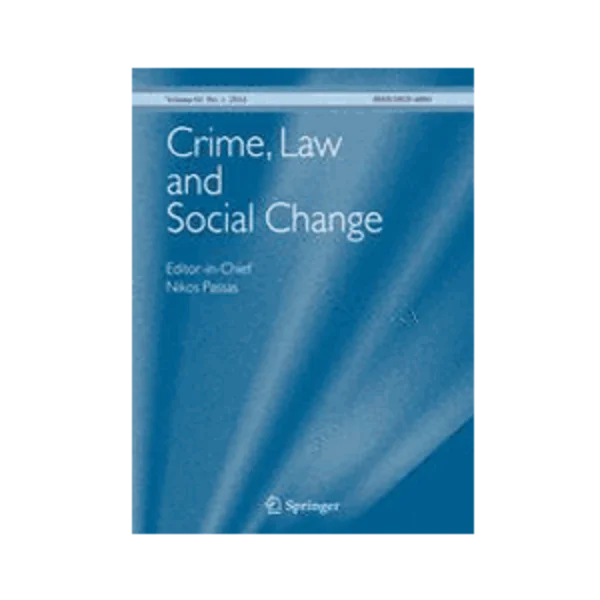-
radicalisation and de-radicalisation of social movements: the comeback of political islam?
جزئیات بیشتر مقاله- تاریخ ارائه: 1392/07/24
- تاریخ انتشار در تی پی بین: 1392/07/24
- تعداد بازدید: 960
- تعداد پرسش و پاسخ ها: 0
- شماره تماس دبیرخانه رویداد: -
forty years after mathiesen wrote the ‘politics of abolition’ his work can enhance our understanding about radicalisation and de-radicalisation of social movements and terrorist groups. in ‘the politics of abolition’ mathiesen explains the mechanism of two social factors that moderate the most contested goals and means of abolitionists groups. due to these mechanisms, abolitionist movements often split into one rather moderate and one ‘radical’ current. the islamist movement is an empirical example for the split the model predicts. jihadism (e.g. al-qaeda and its affiliated groups) represents the most radical form of contemporary islamism, while nationalist islamism (e.g. the muslim brotherhood) and non-jihadi fundamentalism (mainstream salafism) can be considered less radical because these currents either dismissed their abolitionist goals in favour of political integration, or reject terrorist violence as a means to enforce abolitionist goals. the communiqués and public statements of al-qaeda give insight into the discourse within the islamist movement. a sample of jihadi media is reviewed in this article as to compare al-qaeda’s political positions with those of other islamist movements and organisations.
مقالات جدیدترین رویدادها
-
استفاده از تحلیل اهمیت-عملکرد در ارائه الگوی مدیریت خلاقیت سازمانی و ارائه راهکار جهت بهبود
-
بررسی تاثیر ارزش وجوه نقد مازاد بر ساختار سرمایه شرکت های پذیرفته شده در بورس اوراق بهادار تهران
-
بررسی تأثیر سطح افشای ریسک بر قرارداد بدهی شرکت های پذیرفته شده در بورس اوراق بهادار تهران
-
بررسی تأثیر رتبه بندی اعتباری مبتنی بر مدل امتیاز بازار نوظهور بر نقد شوندگی سهام با تأکید بر خصوصی سازی شرکت ها
-
تأثیر آمیخته بازاریابی پوشاک ایرانی بر تصویر ذهنی مشتری پوشاک ایرانی (هاکوپیان)
-
بازاریابی حسی: رویکرد نوین در صنعت بازاریابی
-
using jointly distributed random variables method to determination of saturated sand liquefaction reliability
-
ارائه مدل شبیه سازی برای بهینه سازی گردش مدارک کنترل پروژه
-
میوفیبروبلاستومای عقده لنفاوی در بازوی پسر بچه 13 ساله ”گزارش یک مورد“
-
برآورد بارمالی حوادث منجر به فوت در پروژه های ساختمانی شهر تهران در سال آتی
مقالات جدیدترین ژورنال ها
-
مدیریت و بررسی افسردگی دانش آموزان دختر مقطع متوسطه دوم در دروان کرونا در شهرستان دزفول
-
مدیریت و بررسی خرد سیاسی در اندیشه ی فردوسی در ادب ایران
-
واکاوی و مدیریت توصیفی قلمدان(جاکلیدی)ضریح در موزه آستان قدس رضوی
-
بررسی تاثیر خلاقیت، دانش و انگیزه کارکنان بر پیشنهادات نوآورانه کارکنان ( مورد مطالعه: هتل های 3 و 4 ستاره استان کرمان)
-
بررسی تاثیر کیفیت سیستم های اطلاعاتی بر تصمیم گیری موفق در شرکتهای تولیدی استان اصفهان (مورد مطالعه: مدیران شرکتهای تولیدی استان اصفهان)
-
تحلیل حکم حکومتی در فقه سیاسی
-
پنهان کاری در انتقال داده های پزشکی ایمن برای سیستم های مراقبت بهداشتی مبتنی بر iot
-
ارتباط کوته بینی مدیران با نوسانات سود و سهامداران عمده در شرکت های پذیرفته شده در بورس اوراق بهادار تهران
-
ارائه الگوی مدیریت استعداد در نهاجا
-
utilization of palm oil fuel ash and eggshell powder as partial cement replacement - a review




سوال خود را در مورد این مقاله مطرح نمایید :